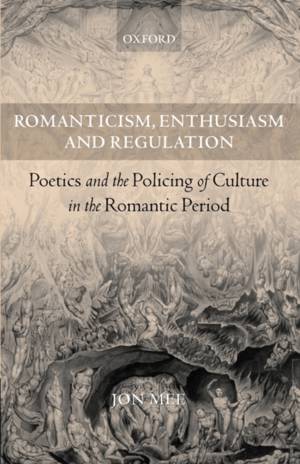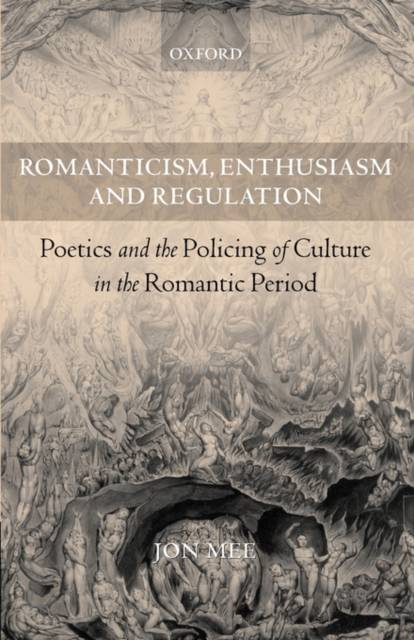
- Retrait gratuit dans votre magasin Club
- 7.000.000 titres dans notre catalogue
- Payer en toute sécurité
- Toujours un magasin près de chez vous
- Retrait gratuit dans votre magasin Club
- 7.000.0000 titres dans notre catalogue
- Payer en toute sécurité
- Toujours un magasin près de chez vous
Romanticism, Enthusiasm, and Regulation
Poetics and the Policing of Culture in the Romantic Period
Jon Mee
Livre broché | Anglais
120,95 €
+ 241 points
Format
Description
What is enthusiasm? Enthusiasm for most of the eighteenth century was identified with excess of religious feeling, although it came increasingly to be used to describe the unregulated and infectious urgings of the crowd more generally. Yet there was a developing alternative understanding of the term which identified it with a therapeutic influx of feeling in an increasingly formalistic and commodified world. This understanding came to be particularly identified with poetry. Enthusiasm was deemed a necessary condition of poetry by the end of the century, but not a sufficient one. For without proper regulation, poetic enthusiasm might become nothing more than the formless emotionalism of the crowd that the literary elite perceived all around them. Although enthusiasm might be thought of as a distinctly Romantic term, this study looks at the way the inherited discourse of enthusiasm structured most writing of the Romantic period. Many of those new to writing as a career in the period took enthusiasm to license their feelings as a legitimate basis for turning to print. Others took this as an alarming version of the old virus. Few elite writers, Coleridge and Wordsworth included, did not take pains to show they were on the right side of the fence that separate the noble enthusiasm of the poet from either the fanaticism of the crowd or the undisciplined pretensions of hacks and scribblers. Understanding the influence of these processes of regulation and the difficulty faced by writers in clearly articulating the difference they were meant to enshrine is at the center of Romanticism, Enthusiasm, and Regulation.
Spécifications
Parties prenantes
- Auteur(s) :
- Editeur:
Contenu
- Nombre de pages :
- 332
- Langue:
- Anglais
Caractéristiques
- EAN:
- 9780199284788
- Date de parution :
- 01-09-05
- Format:
- Livre broché
- Format numérique:
- Trade paperback (VS)
- Dimensions :
- 140 mm x 216 mm
- Poids :
- 421 g

Les avis
Nous publions uniquement les avis qui respectent les conditions requises. Consultez nos conditions pour les avis.






